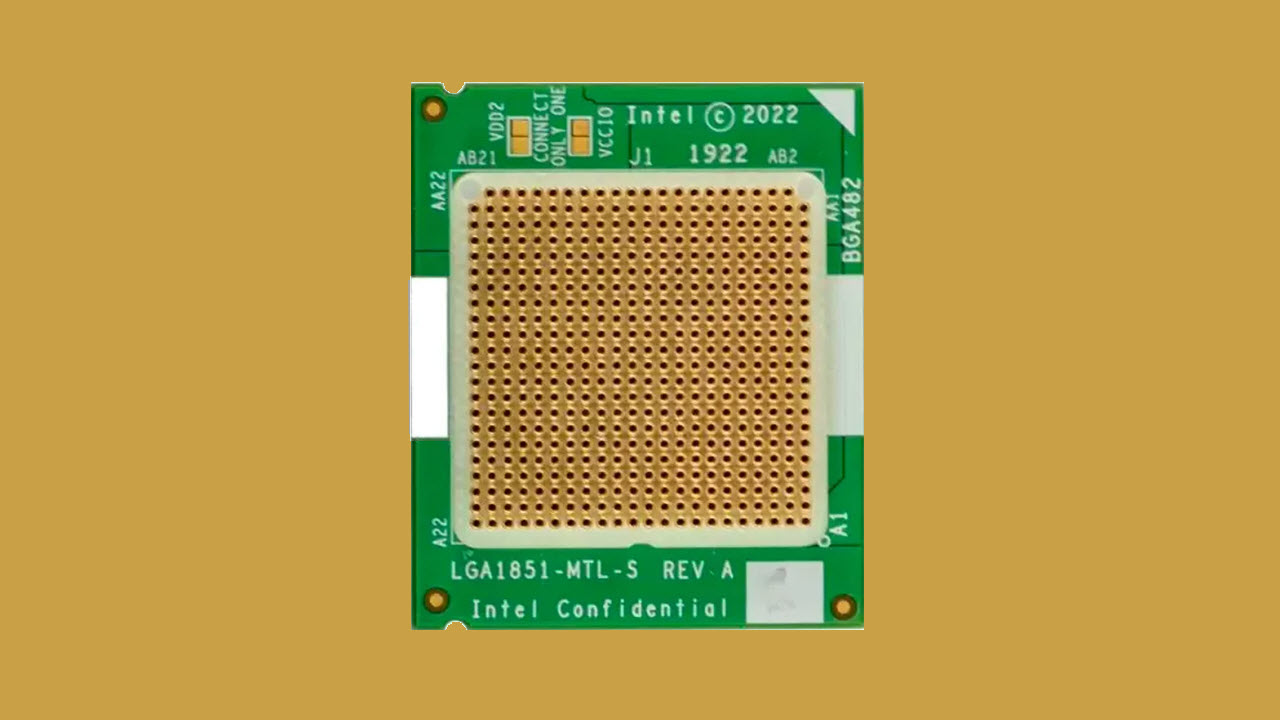
Intel Meteor Lake-S CPU Tool Surfaces for Desktop PC Chips
Although rumors have claimed otherwise, Intel’s 14th Generation Meteor Lake processors may debut in the desktop space after all. If the LGA1851 Meteor Lake-S interposer indicates anything, Intel appears to be testing a desktop variant of Meteor Lake. Maybe the tool serves other internal purposes, so we shouldn’t get our hopes up.
Even before the LGA1700 socket debuted, there were already talks of an LGA18xx socket. The LGA1700 houses 12th Generation Alder Lake and 13th Generation Raptor Lake processors. Therefore, Raptor Lake’s successor, whether it is Meteor Lake or not, will likely debut on a new socket. It’s well-known that Intel’s commitment to a socket isn’t as determined as AMD’s. For instance, AMD has pledged to support the latest AM5 socket through 2025 and beyond. If we look at previous Intel sockets, such as the LGA1200 socket, it only accommodated two generations of processors.
Hardware detective momomo_us (opens in new tab) recently discovered the LGA1851-MTL-S Interposer (Q6UB1851MTLS), seemingly implying that Intel may be preparing Meteor Lake-S desktop chips. The interposer’s job is to provide an electrical conduit that links a socket or connection to another. However, without access to the technical specifications or documentation, it’s hard to speculate the real purpose of the Meteor Lake-S interposer.
The interpose shows 1,851 contacts, aligning with the LGA1851 moniker. Assuming that’s the desktop socket for Meteor Lake, we could be looking at just an 8.9% increase in contacts over the current LGA1700 socket. However, the last transition from the LGA1200 to the LGA1700 socket yielded a 41.7% contact increase.
A previous leak (opens in new tab) of an alleged Intel document supposedly points to the usage of the 14th Generation moniker for upcoming Meteor Lake (MTL) processors. However, the document didn’t specify whether Meteor Lake is coming to mobile, desktop, or both. It’s not unheard of for certain Intel microarchitectures to stay in the mobile segment, for example, Tiger Lake. The document includes Tiger Lake under the 11th Generation section; therefore, the document considers both mobile and desktop lineups.
An unconfirmed Intel roadmap implies that Meteor Lake may not come to the desktop in a near future. However, the roadmap has led many to believe that Intel is reportedly preparing a Raptor Lake Refresh (RPL-R) for a Q3 release. Hence, it’s plausible that the rumored Raptor Lake Refresh is the last ride for Intel’s LGA1700 socket.
Intel has made many strides with Meteor Lake lately. The chipmaker recently deployed some Linux patches, alluding to an L4 cache with the upcoming Meteor Lake chips. An Intel patent also emerged confirming the Meteor Lake’s L4 cache, for which Intel uses the “Adamantine” moniker for the L4 cache. Mobile Meteor Lake is slated to launch this year, and if the desktop variant is on Intel’s plans, it probably won’t arrive until 2024, assuming there is some credence to the Raptor Lake Refresh.

